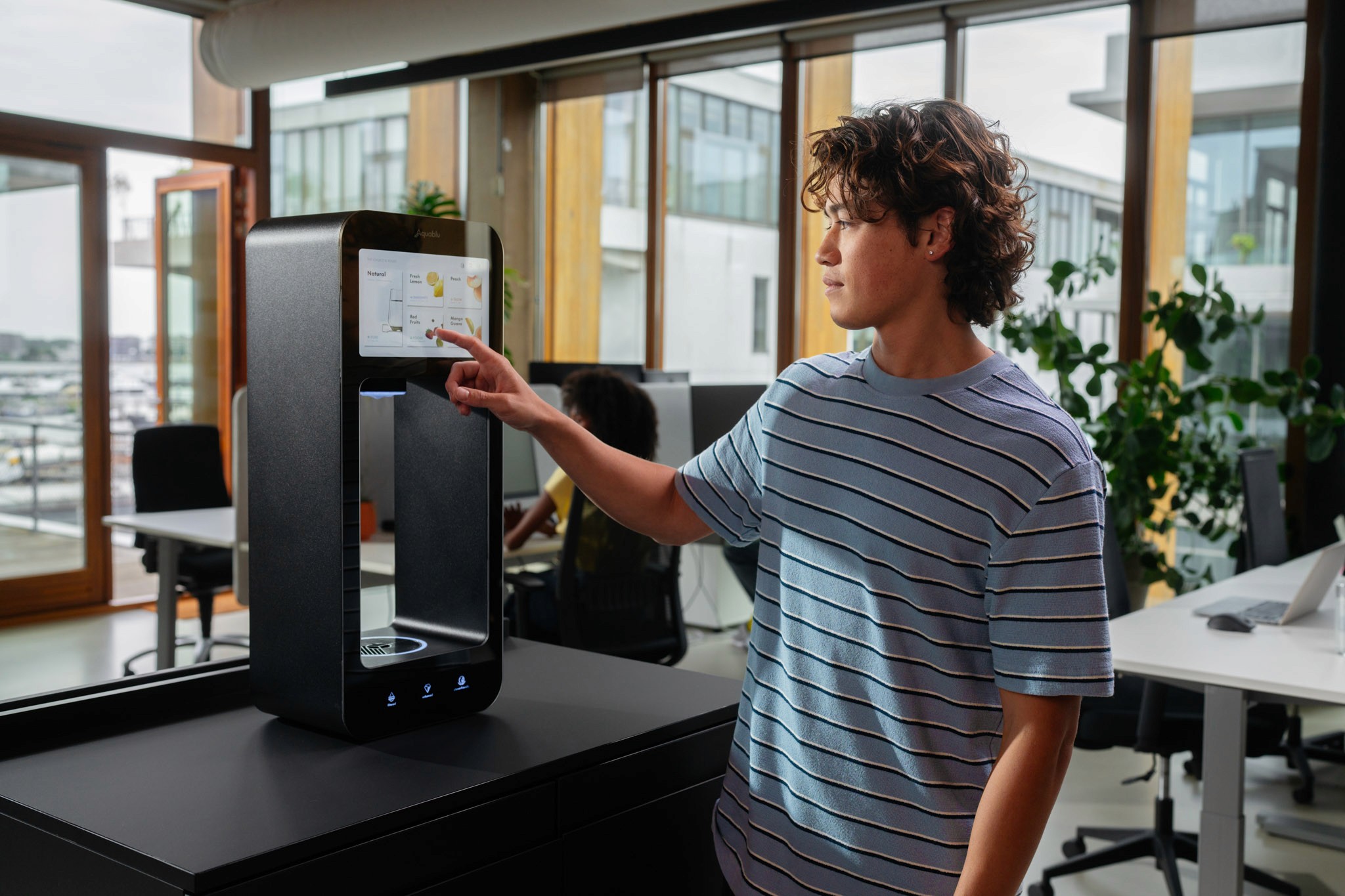WHY TRANSPORTING BOTTLED DRINKING WATER IS A WASTE. OF MONEY, TIME AND THE ENVIRONMENT.
At home, we don’t let the tap run when brushing our teeth – at least we try – but once we’ve left the house, we spent millions of euros on water. Well, let’s just say; a house is not a home. Water is becoming increasingly popular as a drink. In fact, this category is growing faster than soda – a liquid that we’ve been hooked on for years. That’s a good thing. Because, just because soda tastes good, it doesn’t mean it’s good for you. The simple truth: water has fewer calories than soda, it doesn’t harm your teeth and it is proved that water helps your brain function better.
So yes, water is more healthy than soda. But you probably don’t need another lecture on that. What we’d like to stretch though, if our water consumption is growing, why don’t we take the opportunity to grow our habits too?
The 30 liters water an individual consumes every year, is often bottled up. Why? Mainly because there’s a tendency to fear tap water and doubt the quality of it. The result: over 64 billion liters of bottled water is sold on the global market. It is water with a taste. A taste of plastic waste, high economical costs, polluting transport and influence on local water sources.
THE BULLSHIT WE BUY.
Mineral water from Bar Le Duc? For decades, it has been a public secret that it’s ‘just’ tap water from the area Utrecht. In a plastic bottle. Marketed really, really well. It are brands like these that shape the magical image of water. Evian, water from the French Alps; or Pellegrino, originating from the rough mountains in Lombardy. And what about the liquid gold from the Himalaya? Where Tibetan mineral water is extracted by Chinese factories to sell around the world.
One doesn’t need to be an environmental activist, or a dude with sign, to understand the effects of transporting litres of water from one side of the world to another. Transport comes with environmental costs as well as monetary costs. It’s not only that, when we’re paying – let’s say – 2,75 for a bottle of water, we pay for packaging, marketing and profit. Because bottled water companies don’t produce water, they produce plastic bottles and fairytales about the origin of the water.
SO, WHY DO WE TRANSPORT WATER FOR HUNDREDS OF MILES, IF THE BEST WATER IS LOCALLY AVAILABLE?
Importing bottled water can be an excuse if the quality of tap water is low. But with the evolving technology of today, you have options. Better options. With less cost; both environmentally and monetary. With a smart water purifier, every sweet water source becomes crisp mineral water. Mouth-watering, really. Today there are even advanced techniques that add healthy minerals and antioxidants to the water. Without the taste of transport and plastic.
Curious how you can save money and the earth with the water you consume? Leave your e-mail to find out.
by
Marc van Zuylen
/


